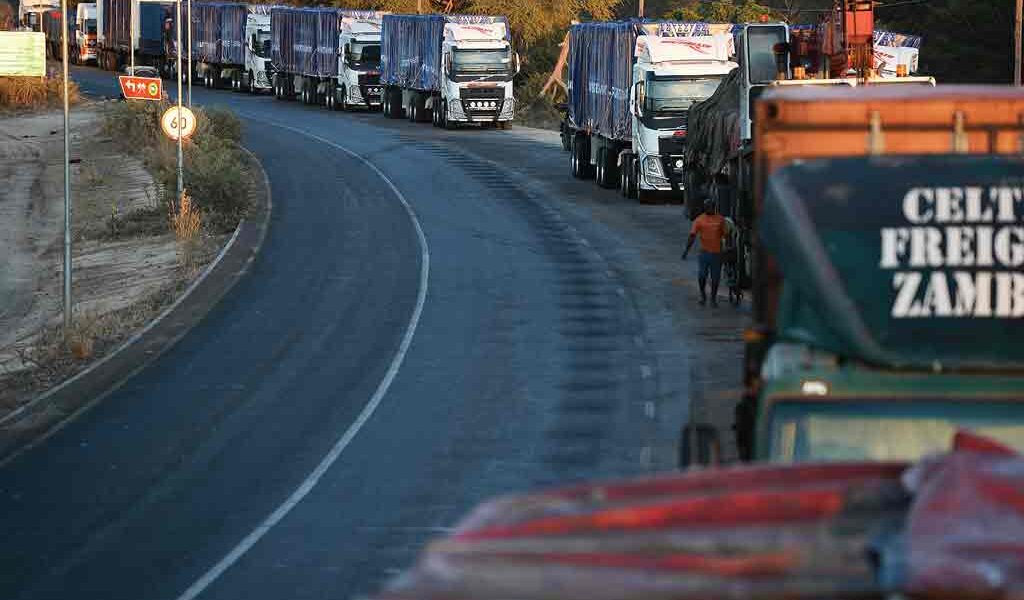The local economy is highly likely to be aff ected due to ‘spillover eff ect’- Analyst
TSHIAMO TABANE
There are fears that the South African economic recession could hurt Botswana economy, locally based market analysts warned this week.
Recent figures show that South African Gross Domestic Product (GDP) contracted by 0.7% in the first quarter of (Q1 2017), after the 0.3% contraction during the fourth quarter of 2016 (Q4 2016) and according to economists two consecutive quarters of GDP contraction is an indication of economic recession. According to the figures, the recession came as a result of sharp decline in trade, mining, manufacturing and spending in government and household sector in the country.
In an interview with Gazette Business local economists cautioned that South African economic recession is not good news for Botswana as the local economy is highly likely to be affected due to ‘spillover effect’. Motswedi Securities market analyst Garry Juma noted that the local economy could experience a decline since Botswana is South Africa’s biggest neighboring trading partner and its currency, the Rand, has a 45% weight in the Pula basket. According to the analyst, if the recession is prolonged, it could result with reduction in SACU revenues due to declines in imports from SA: “Both the ratings downgrade and the slowdown of the SA economy will definitely have an impact on the local economy especially in terms of decline in government revenue from SACU contributions especially next year when SACU revenue is collected and recalculated. SA contributes a large chunk towards the SACU revenue basket and its slowdown will reduce imports and custom duties paid into the SACU Common Revenue Pool.”
Juma stated that the tourism revenues could also feel the pinch of the recession since Botswana receives a lot of tourists from South Africa. “The depreciation of the rand will somehow make it expensive for them to visit Botswana and will somehow reduce their spending.” He explained that weakening of the Rand could also increase the costs of imports from SA manufacturers and by extension result with increases in prices of goods and services in Botswana. Imported inflation which normally weakens consumer purchasing power could reduce aggregate demand and consumption in both Botswana and South Africa, according to Juma: “Manufactures who are exporters into SA will also feel the pitch as they might experience softening demand of their products. They will also incur exchange rate losses due to softening of the rand.”
First National Bank of Botswana (FNBB) market analyst Moatlhodi Sebabole has warned that as a result of the recession and the likelihood of low SACU revenues, Botswana could record a wider budget deficit than anticipated. When asked to comment on sectors of Botswana’s economy that could feel the impact of the recession, Sebabole said “The primary sectors in the production side of the economy might feel the impact. Mining production will remain muted especially for base metal production (copper, nickel) due to several mine closures we have had; the manufacturing side will also under-perform since Botswana is still at low levels of industrialization and thus production costs still relatively higher which squeezes margins for export and sales. Also, the agriculture sector, since the food sufficiency levels remain low and below 30% of local demand capacity.”
The market analyst, however, noted that Botswana’s 2017 economic growth will not decelerate simply because South Africa is in a recession. According to the analyst Botswana has independent economic growth dynamics that determine local growth. He cited diamond sales for first quarter of 2017, saying they have been favourable and will support local economic growth for the quarter. Additionally, there has been stability in the supply side of electricity and water (utilities) – which will support a positive growth outlook.”
The analyst recommended that to cushion itself from South Africa economic turbulences, Botswana should diversify its economic set-up. He stated that revenue streams have to get more diversified so as to reduce reliance on SACU revenues and diamonds. “There also has to be focus on business-friendly regulations and turnover times so as to compete more for FDI and capital flows. The PPP network also has to be accelerated so as to enhance project management and delivery, with a focus on economic returns.”

